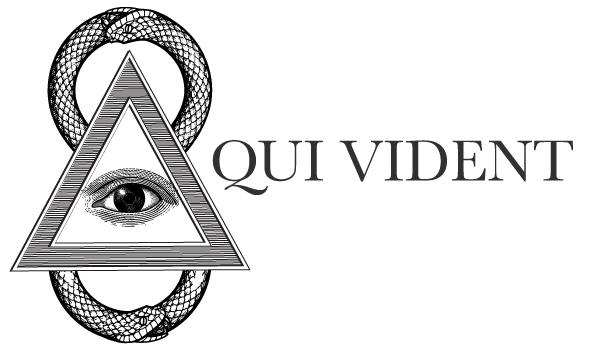tragedy of the commons
This is certainly a great jumping off point for conversations I've been mulling over this more through the night each time I've woken up and I think this really comes down to two primary issues:
A) "individual users acting independently according to their own self-interest …"
The assumption of many Thelemites still today (though I see it less, admittedly, than say late 1990s/early 2000s) is that individuals are entirely independent of each other and have the ability to act "according to their own self-interest" without consequence to the detriment of others. Oh, don’t get me wrong: we give lip service to consequences all the time, but we don’t actually believe it. We’re each the center of our own little universes. Nothing can really touch us because nothing outside our perspective is "real." I don’t have to care about you because I’m doing my will and you need to just shut the fuck up and do yours. It’ll all wash out in the end.
Right?
Wrong.
The ethical implications of the Law of Thelema is quite clear that no individual actually acts independently of another. The whole underlying structure of "Do what thou wilt shall be the whole of the Law" is premised on quite a bit of doctrine (or, more precisely, truth-claims) that has to be taken into account first before one can actually gasp the pragmatic implications of the verse itself (much less the deeper metaphysical/spiritual implications). "company of heaven," "every man and every woman," yada yada yada.
One’s self-interest, when guided by the Law of Thelema, does not provide a fog of justification to live in a self-contained, isolated bubble. It demands that we take into consideration all other influences—at the risk of over complexity here—to our Khu. To violate another, to "behave contrary to the common good" (as defined in this 'tragedy') in a manner that is destructive both to others and self, would be to violate our own self-interest in the first place.
B) "… behave contrary to the common good."
I recognize that the "tragedy of the commons" defines the common good variously. It is my brief understanding that it originally meant something that was commonly owned by a collective of individuals. Today, it seems to be spread out more broadly to include anything that a collective of people utilize "in common,." e.g., air, water, etc.
This comes back to two principles, both within "Duty" as well.
First, the scale of Nature. We certainly have the use of the environment, broadly defined, as we see fit. There is freedom of action, but no freedom from the consequences of action.
This, I think, would fall under the section in "Duty" (D.1) where Crowley writes, "It is a violation of the Law of Thelema to abuse the natural qualities of any animal or object by diverting it from its proper function, as determined by consideration of its history and structure." The whole theory/tragedy of the commons is based on the principle of the natural qualities of an object being diverted from its proper function, i.e., a pasture overgrazed, or "when wanton deforestation has ruined a climate or a soil, or as when the importation of rabbits for a cheap supply of food has created a plague."
The example given was deforestation and how one group ("the rich") goes in, wrecks the environment, and pulls out with the profits leaving the other group ("the poor") holding the bag. The infraction against the Law, as Crowley would call it, does not rest solely on "the poor" here. (I really like this example because it’s similar to the illustration Crowley himself uses in "Duty.") While that is the most obvious (and, yes, first) vexation within the situation, it is not the ultimate result of such actions. Eventually, deforestation will result in other consequences that are shared by everyone, not merely "the poor." Just because it does not catch up to "the rich" in a manner (or "soon enough") that soothes the moral outrage of a few is no reason to ignore the consequences as a whole.
Second, "the aim of the legislature must be to secure the amplest freedom for each individual in the state." I think it is well within the purview of a government to regulate any human activity that has an empirically measurable effect on the population, e.g., pollution, toxic waste, etc. These deal with "the commons," so to speak, that would be invariably damaged through misuse by individuals without regard for others on a larger scale. This is a tricky line, to be sure, when it comes to a larger force (government) placing restraints (discipline) on a population.
The underlying (socio-political) assumption of "Duty" is one of the "general welfare of the race being necessary in many respects to your own, that well-being, like your own, principally a function of the intelligent and wise observance of the Law of Thelema, it is of the very first importance to you that every individual should accept frankly that Law, and strictly govern himself in full accordance therewith."
We are a far cry from the general acceptance of the Law of Thelema (as expected in the latter sections of "Duty"). Like most concepts, the issue of critical mass comes into play. This is something that would begin more on a local level and begin to circulate higher in the political field (community, territorial, city, state, nation). But it is worth noting that "Duty" assumes a civil responsibility toward others even if only in the sense of offering the Law of Thelema as the panacea of the human condition.
Attribution
No part of this publication may be used or redistributed for any purpose without the express prior written consent of the author.
Canons of Thelemic Philosophy & Religion © 1996-2024 by Qui Vident.

Comments
If you wish to comment about the materials here, feedback is welcome. Feel free to email questions, comments, and concerns regarding the Canons to curate@quivident.co.